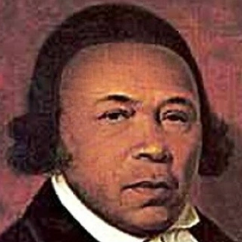 At one time, there were 10 historically Black colleges and universities associated with the Episcopal Church. Only two remain: St. Augustine’s University in Raleigh, North Carolina, and Voorhees College in Denmark, South Carolina.
At one time, there were 10 historically Black colleges and universities associated with the Episcopal Church. Only two remain: St. Augustine’s University in Raleigh, North Carolina, and Voorhees College in Denmark, South Carolina.
Saint Augustine’s University was founded in 1867 by the Episcopal Diocese of North Carolina. Today, the university enrolls 900 students. Voorhees College is a private historically black four-year liberal arts college that was founded as the Denmark Industrial School by Elizabeth Evelyn Wright, a young black woman, in 1897. Today, it enrolls about 500 students.
The Episcopal Church is urging its members to make contributions to support these HBCUs at observances of the Feast of Absalom Jones on February 13. Michael Curry, the presiding bishop of the church, stated that “in light of The Episcopal Church’s renewed covenant and continuing commitment to the work of racial justice and reconciliation I hope you will join me in supporting the Absalom Jones Fund. These schools bring educational, economic, and social opportunity to often resource-poor communities, and they offer many blessings into the life of the Episcopal Church. HBCUs create dynamic and empowering educational environments for college students from diverse backgrounds. Now more than ever these institutions need your support.”
Donations made to the Absalom Jones Fund will help support scholarships and financial aid for students in need as well as funding for quality facilities, faculty recruitment and retention, and the development of religious life on campus.
Absalom Jones was an African American abolitionist and clergyman and the first African American ordained a priest in the Episcopal Church. Absalom Jones was born enslaved to Abraham Wynkoop in 1746 in Delaware. Jones moved to Philadelphia after his master sold his plantation along with Absalom’s mother and six siblings. Jones bought his wife Mary’s freedom and later his master granted him emancipation in 1784.
In 1787, Jones co-founded the Free African Society, a mutual aid benevolent organization that was the first of its kind organized by and for Black people. Bishop William White ordained Jones a deacon in 1795 and a priest on September 21, 1802. Jones served as a priest at the African Episcopal Church of St. Thomas in Philadelphia. He died in 1818.


I am in contact with an Episcopal based community college in Haiti – BTI (Business & Technology Institute), and they can use your help as well. They are the first community college in Haiti, and can also use Voorhees College & St. Augustine University’s help in forming a partnership with their students.